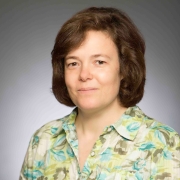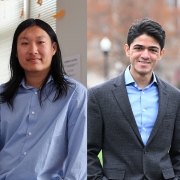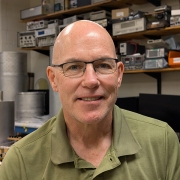Mathew Madhavacheril Part of Team Awarded Funding from Scialog

A team including Mathew Madhavacheril, Assistant Professor of Physics and Astronomy, is among the first-ever recipients of funding from a new initiative supporting an ambitious 10-year project. The undertaking aims to answer pressing questions about dark energy, dark matter, and supermassive black holes, among other space phenomena.
Madhavacheril’s team, which includes colleagues from the University of North Carolina at Chapel Hill and the University of Utah, will receive $60,000 in direct costs to support its ongoing research into relativistic transients, or energetic explosions in the broader universe. The award is one of 21 same-sized allotments that will support 20 scientists from a mix of Canadian and U.S. universities and institutions, part of a broader push to ensure the success of the decade-long Legacy Survey of Space and Time (LSST).
LSST involves taking hundreds of images of the southern sky at the Vera C. Rubin Observatory on the El Peñon peak of Cerro Pachón, located in northern Chile, on a nightly basis. It produces approximately 20 terabytes of data at a time to help astronomers crack open the mysteries beyond our planet. To jump-start the survey, the Research Corporation for Science Advancement (RCSA) is funneling seed money into Scialog: Early Science with the LSST, an initiative empowering cross-disciplinary connections between early-career scientists, including Madhavacheril and his co-researchers.
Scialog itself is a three-year initiative, taking its name from a mashup of “science” and “dialog.” RCSA hopes that the undertaking will help break down disciplinary silos and serve as a catalyst for major scientific breakthroughs. Madhavacheril says the Rubin Observatory has made some simulated data available, with real sky data currently scheduled for July 2025.





